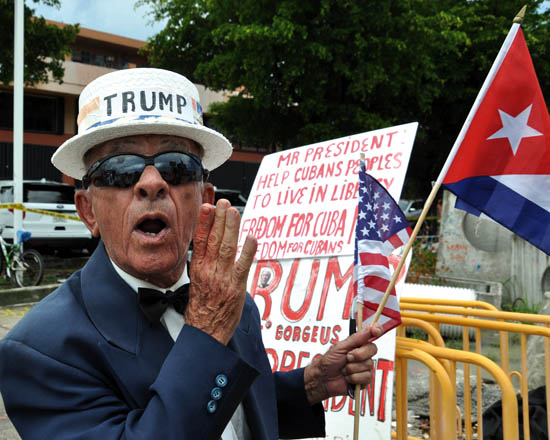HAVANA — US President Donald Trump says tightening restrictions on American business and tourism in Cuba will help the island’s people and small private businesses, but analysts warn it will do the opposite.
The US president framed it as a move against a “cruel and brutal” regime: bypassing the state military-run business group GAESA to channel investment to the people.
But in Cuba, cutting out the armed forces means undermining the tourism sector, which is largely controlled by GAESA but also supports many small, private businesses.
“The new measures will attack the only sources of growth that the Cuban economy currently has: tourism and the private sector,” said Pavel Vidal, a Cuban economist at Pontifical Xaverian University in Colombia.
“The companies under military control are decisive for the operation of tourist services. If you restrict its capacity to receive foreign investment and make international payments, the economy is sure to suffer.”
‘Backward move’
Cuba’s state Business Administration Group (GAESA) manages some 50 hotels, chains of shops, construction, communications and distribution firms and the major port of Mariel west of Havana.
Run by Luis Rodriguez Lopez-Callejas, son-in-law of Cuba’s President Raul Castro, GAESA is involved in joint ventures with several foreign firms that have driven a tourism boom on the island, including the Marriott hotel chain.
Since taking over the running of the country just over a decade ago, Castro has been gradually expanding the private sector and trying to open up the country to foreign businesses.
After decades of Cold War enmity, he oversaw a diplomatic rapprochement with the United States under Trump’s predecessor Barack Obama.
But the reforms have been slow and Cuba is in recession, dragged down by the decline in cut-price oil imports from its crisis-hit ally Venezuela.
US companies active in Cuba have complained about the threat to business — such as the Starwood hotel chain which last year opened a Sheraton in Havana. But the biggest impact may be felt by Cubans themselves.
“There will be little impact on the US economy,” said Michael Shifter, a specialist at the Inter-American Dialogue, a Washington-based research group.
“But for the Cuban economy — including the private sector — this shift is a tremendous blow.”
A group of 55 Cuban businesspeople sent a letter this week to Trump’s daughter and adviser, Ivanka, warning against the policy changes.
